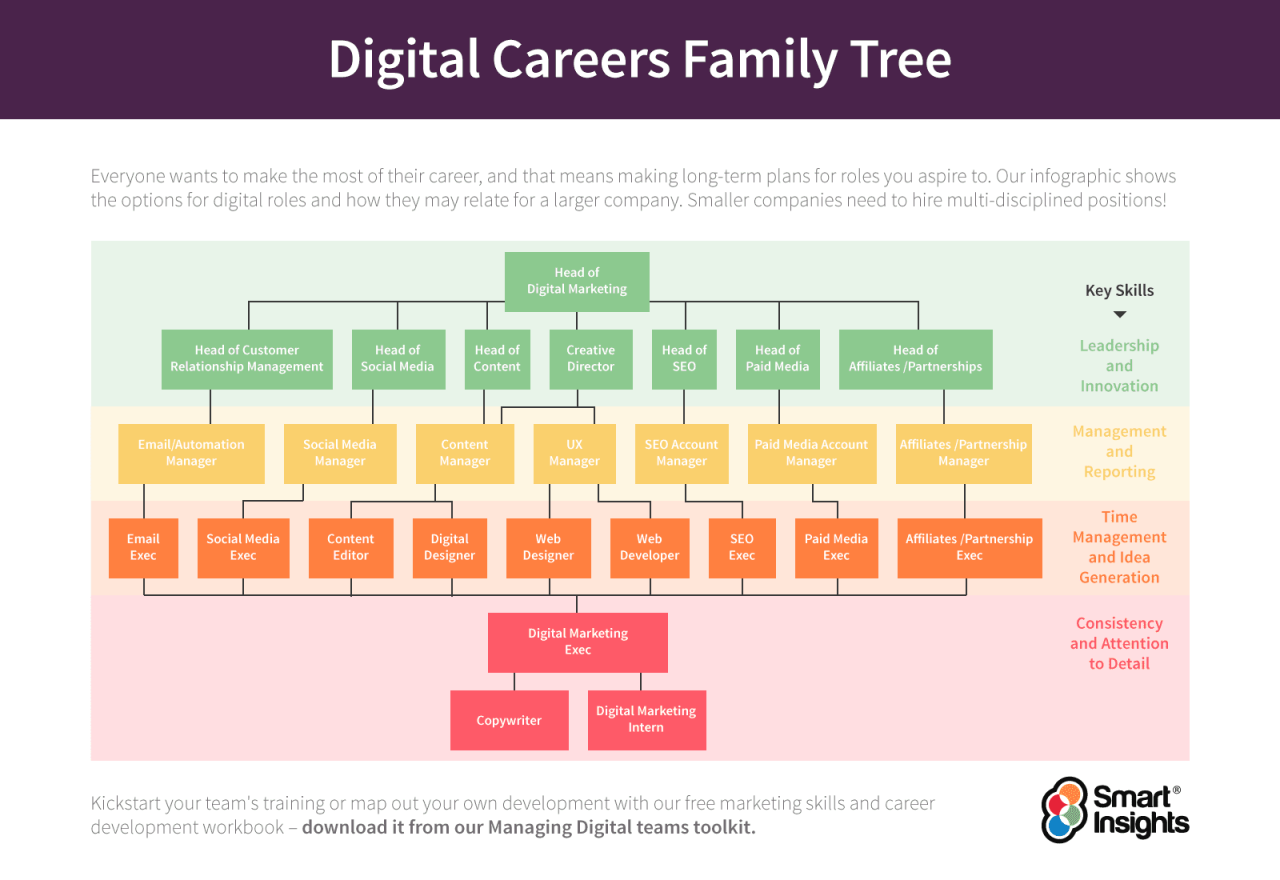Digital Technology Jobs: Shaping the Future Workforce
Digital technology jobs are at the forefront of the modern workforce, driving innovation and shaping the future of industries across the globe. The rapid evolution of technology has created a […]

Digital technology jobs are at the forefront of the modern workforce, driving innovation and shaping the future of industries across the globe. The rapid evolution of technology has created a surge in demand for skilled professionals in fields like software development, data analysis, cybersecurity, and artificial intelligence.
These roles are not only in high demand but also offer exciting opportunities for growth and development. As technology continues to advance, the digital landscape will continue to evolve, creating new challenges and opportunities for professionals in this sector.
Finding and Applying for Digital Technology Jobs

The digital technology job market is dynamic and competitive. Landing your dream job requires a strategic approach, including targeted job searching, crafting compelling application materials, and preparing for interviews. This section will guide you through the process of finding and applying for digital technology jobs, equipping you with the tools and knowledge to succeed.
Searching for Digital Technology Jobs
Finding the right job requires a focused approach. Explore various online job boards, company websites, and professional networking platforms to identify relevant opportunities.
- Online Job Boards: Websites like Indeed, LinkedIn, Glassdoor, Monster, and Dice are valuable resources for digital technology jobs. These platforms allow you to filter by location, job title, and company, making it easier to find relevant opportunities.
- Company Websites: Many companies post their open positions directly on their websites. Checking the “Careers” or “Jobs” sections of company websites can reveal hidden gems and provide valuable insights into company culture and values.
- Professional Networking Platforms: LinkedIn is an excellent platform for connecting with professionals in the digital technology field. Use LinkedIn to network with recruiters, hiring managers, and potential colleagues, and stay updated on industry trends and job openings.
- Industry Events and Conferences: Attending industry events and conferences is a great way to network with potential employers and learn about emerging technologies. Many companies recruit at these events, offering valuable opportunities to make connections and learn about open positions.
Crafting a Compelling Resume and Cover Letter
Your resume and cover letter are your first impressions on potential employers. Make sure your application materials showcase your skills, experience, and qualifications effectively.
- Tailor your Resume: Customize your resume for each job application. Highlight the skills and experience most relevant to the specific role and company. Use s from the job description to ensure your resume is easily scanned by Applicant Tracking Systems (ATS).
- Quantify your Achievements: Instead of simply listing your responsibilities, use quantifiable metrics to demonstrate the impact of your work. For example, instead of saying “Managed social media accounts,” you could say “Increased website traffic by 20% through targeted social media campaigns.”
- Showcase your Technical Skills: List your technical skills prominently on your resume, including programming languages, software tools, and relevant certifications.
- Write a Compelling Cover Letter: Your cover letter should demonstrate your understanding of the company and the specific role. Explain why you are interested in the position and how your skills and experience align with the company’s needs.
Preparing for Interviews
Once you land an interview, it’s crucial to prepare thoroughly. Research the company, practice your answers to common interview questions, and dress professionally.
- Research the Company: Before your interview, research the company’s mission, values, products, and recent news. Understanding the company’s culture and goals will help you tailor your responses and demonstrate your genuine interest.
- Practice Common Interview Questions: Prepare answers to common interview questions, such as “Tell me about yourself,” “Why are you interested in this position,” and “What are your strengths and weaknesses?” Practice answering these questions aloud to build confidence and ensure your responses are clear and concise.
- Prepare Questions for the Interviewer: Asking insightful questions demonstrates your engagement and interest in the role. Prepare questions about the company culture, team dynamics, and future growth opportunities.
- Dress Professionally: Dress professionally for your interview, even if the company has a casual dress code. This shows respect for the interviewer and the company.
Negotiating Salary, Digital technology jobs
Once you receive a job offer, it’s important to negotiate a salary that reflects your experience and value. Research industry salary benchmarks and be prepared to justify your desired compensation.
- Research Industry Salary Benchmarks: Use online resources like Glassdoor, Salary.com, and Payscale to research salary ranges for similar roles in your location. This will give you a realistic idea of what to expect.
- Be Prepared to Justify Your Desired Compensation: Highlight your skills, experience, and accomplishments that make you a valuable asset to the company. Be ready to discuss how your contributions will benefit the company and justify your desired salary.
- Be Confident and Professional: Approach salary negotiations with confidence and professionalism. Express your enthusiasm for the opportunity and your willingness to negotiate in good faith.
Case Studies of Successful Digital Technology Professionals: Digital Technology Jobs
Inspiration comes from those who have paved the way. This section explores the journeys of remarkable individuals who have achieved success in the digital technology realm, highlighting their career paths, challenges, and valuable lessons learned. These case studies offer a glimpse into the diverse range of possibilities within the field and provide practical insights for aspiring professionals.
Successful Digital Technology Professionals
These individuals have demonstrated exceptional skills, adaptability, and dedication in their respective fields. Their stories serve as a testament to the rewarding nature of a career in digital technology.
- Sarah Jones, Chief Technology Officer (CTO) at a Leading Fintech Company: Sarah’s career path exemplifies the power of continuous learning and embracing new technologies. Starting as a software developer, she honed her skills through various roles, eventually leading her to the CTO position. Sarah’s passion for innovation and her ability to navigate complex technical challenges have been instrumental in her company’s success. She advises aspiring professionals to “never stop learning and always be curious about emerging technologies.”
- David Lee, Data Scientist at a Global Research Institute: David’s journey highlights the importance of strong analytical skills and a deep understanding of data. He transitioned from a mathematics background to a data science career, leveraging his analytical prowess to extract valuable insights from complex datasets. David emphasizes the need for strong communication skills to effectively convey data-driven findings to stakeholders.
- Maria Rodriguez, UX Designer at a Top Digital Agency: Maria’s career demonstrates the critical role of user-centric design in the digital world. Her ability to empathize with users and translate their needs into intuitive and engaging digital experiences has been instrumental in her success. Maria advises aspiring designers to “always prioritize the user experience and be passionate about creating solutions that solve real problems.”
Challenges and Lessons Learned
These individuals have encountered various challenges along their paths, offering valuable lessons for those embarking on similar journeys.
- Staying Ahead of the Curve: The rapid pace of technological advancements necessitates continuous learning and adaptation. Sarah Jones emphasizes the importance of embracing new technologies and staying informed about industry trends.
- Overcoming Technical Hurdles: David Lee highlights the need for problem-solving skills and a willingness to persevere through technical challenges. He advises aspiring professionals to “never be afraid to ask for help and to leverage resources available to overcome obstacles.”
- Communicating Effectively: Maria Rodriguez underscores the importance of clear and concise communication in conveying design concepts and user insights. She advises aspiring designers to “develop strong communication skills to effectively collaborate with teams and stakeholders.”
Career Advice from Successful Professionals
These individuals offer invaluable advice for those aspiring to build successful careers in digital technology.
- Embrace Continuous Learning: The digital technology landscape is constantly evolving, requiring individuals to continuously learn and adapt. Sarah Jones emphasizes the importance of “staying curious, exploring new technologies, and investing in ongoing education.”
- Develop Strong Problem-Solving Skills: The ability to solve complex technical problems is essential for success in digital technology. David Lee advises aspiring professionals to “develop a systematic approach to problem-solving and to embrace challenges as opportunities for growth.”
- Prioritize User Experience: Maria Rodriguez emphasizes the importance of user-centric design in creating successful digital products. She advises aspiring designers to “understand user needs, conduct thorough research, and create intuitive and engaging experiences.”
Profiles of Successful Digital Technology Professionals
| Name | Profession | Achievements | Career Advice |
|—|—|—|—|
| Sarah Jones | Chief Technology Officer (CTO) | Led the development of innovative fintech solutions, driving company growth and expansion. | Embrace continuous learning and stay curious about emerging technologies. |
| David Lee | Data Scientist | Developed data-driven models that improved decision-making and generated valuable insights for research. | Develop strong analytical skills and communicate findings effectively. |
| Maria Rodriguez | UX Designer | Designed user-friendly and engaging digital experiences that enhanced user satisfaction and brand loyalty. | Prioritize user experience and be passionate about creating solutions that solve real problems. |
Closure
The world of digital technology jobs is dynamic and constantly evolving, offering individuals with the right skills and passion a chance to make a real impact. By understanding the trends shaping this industry, developing relevant skills, and staying adaptable, individuals can position themselves for success in this exciting and rewarding field.
While digital technology jobs are booming, it’s important to remember that traditional trades still hold value. If you have a passion for beauty and artistry, consider pursuing a career in nail technology. You can find financial assistance to help you achieve your goals through nail technology scholarships.
These scholarships can help you develop your skills and launch a successful career in a field that offers both creative expression and professional satisfaction.








